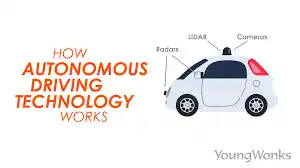Future of Electric Vehicles

In recent years, the automotive industry has witnessed a transformative shift toward sustainable and eco-friendly transportation solutions, with electric vehicles (EVs) at the forefront of this revolution.
As concerns about climate change and environmental sustainability grow, the future of electric vehicles looks exceedingly promising.
Let’s explore the cutting-edge developments and advancements that are shaping the future of transportation.
Advancements in Battery Technology
One of the significant hurdles in the widespread adoption of electric vehicles has been battery technology.
However, continuous research and development have led to significant advancements.
Modern EVs are equipped with high-capacity batteries that offer longer driving ranges, faster charging times, and increased overall efficiency.
Scientists and engineers are actively working on next-generation batteries, such as solid-state batteries, which promise even higher energy density and faster charging capabilities.
Expansion of Charging Infrastructure
The growth of electric vehicles is intricately linked to the expansion of charging infrastructure.
Governments, private companies, and entrepreneurs are investing heavily in building an extensive network of charging stations.
Fast-charging stations are becoming more prevalent, reducing charging times significantly.
Additionally, innovative solutions like wireless charging technology are being explored, providing hassle-free charging experiences for EV owners.
Diverse Range of Electric Vehicles
The future of electric vehicles is not limited to compact cars.
Automakers are diversifying their offerings, introducing electric SUVs, trucks, buses, and even electric motorcycles.
This diversity ensures that consumers have a wide range of options, catering to different preferences and needs.
Electric vehicles are no longer a niche market but a versatile and practical choice for various transportation requirements.
Integration of Smart and Autonomous Features
Electric vehicles are becoming smarter and more connected.
Integrating advanced AI-driven features and autonomous capabilities, EVs are not only eco-friendly but also technologically advanced.
Enhanced safety systems, self-driving capabilities, and seamless integration with smart devices are becoming standard features in electric vehicles, making them not just a mode of transport but a holistic digital experience.
Environmental Impact and Sustainability
One of the key drivers of the electric vehicle revolution is its positive impact on the environment.
Unlike traditional gasoline-powered vehicles, electric vehicles produce zero tailpipe emissions, reducing air pollution and greenhouse gas emissions.
As more renewable energy sources power charging stations, the overall carbon footprint of electric vehicles continues to decrease, making them an essential component in the fight against climate change.
FAQs
How far can modern electric vehicles travel on a single charge?
The driving range of modern electric vehicles varies widely, with some models offering over 300 miles on a single charge. Factors like battery capacity, driving conditions, and vehicle design influence the range. Advances in battery technology are continually extending these ranges.
How long does it take to charge an electric vehicle?
Charging times for electric vehicles depend on the charger’s power output and the vehicle’s battery capacity. Fast-charging stations can charge a significant portion of the battery in around 30 minutes to an hour. Home charging with a standard wall outlet might take several hours for a full charge.
Are electric vehicles more expensive to maintain than traditional vehicles?
Electric vehicles generally have fewer moving parts and require less maintenance than traditional vehicles. They don’t need oil changes, and brake maintenance is reduced due to regenerative braking systems. While the initial purchase price might be higher, the long-term maintenance costs are often lower.
How eco-friendly are electric vehicles in terms of production and recycling?
Electric vehicles have a smaller carbon footprint compared to traditional vehicles, even considering the production process. As the industry grows, efforts are being made to enhance the sustainability of battery production and recycling. Recycling initiatives are becoming more prevalent, ensuring that EV batteries are disposed of and recycled responsibly.





